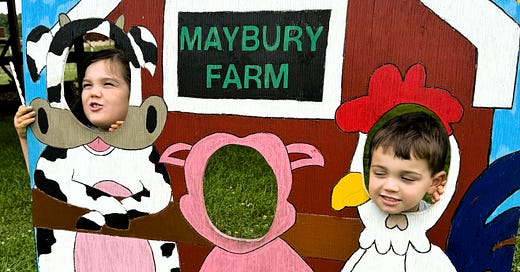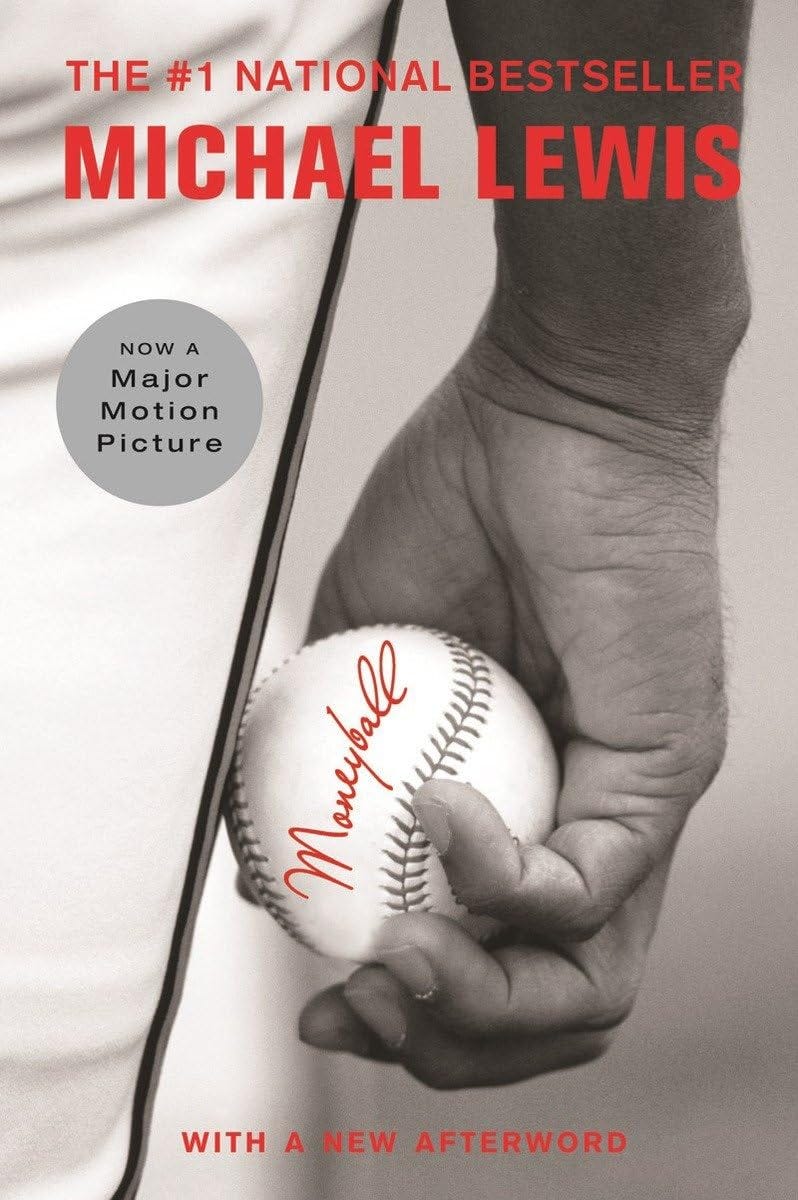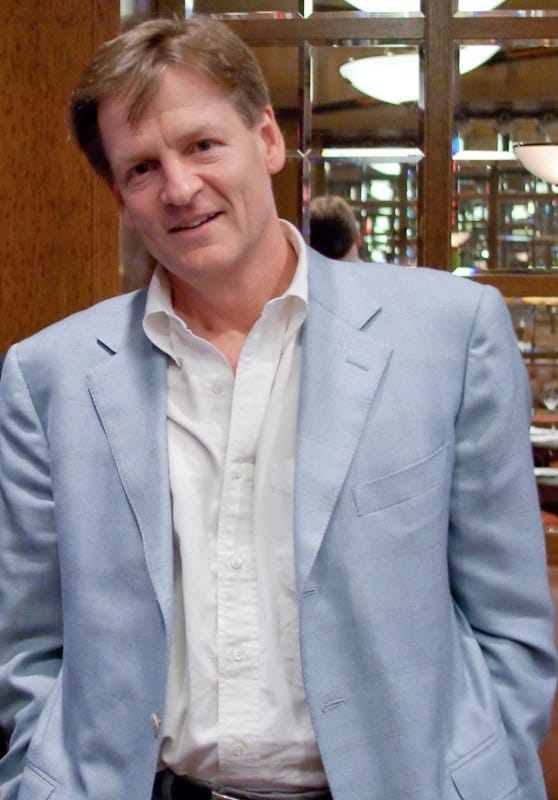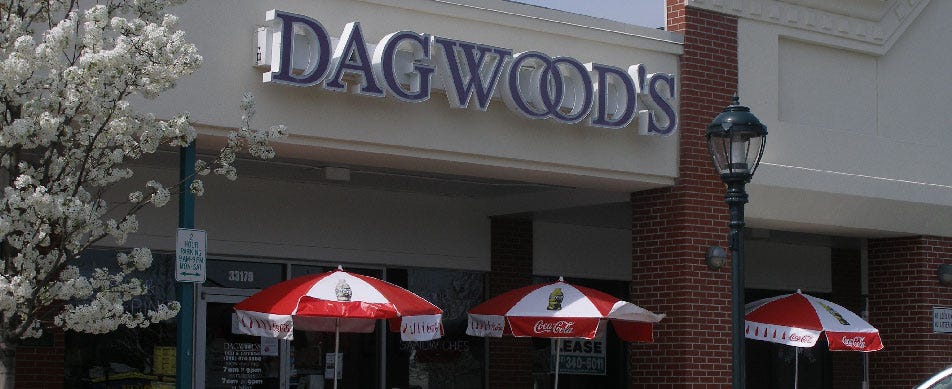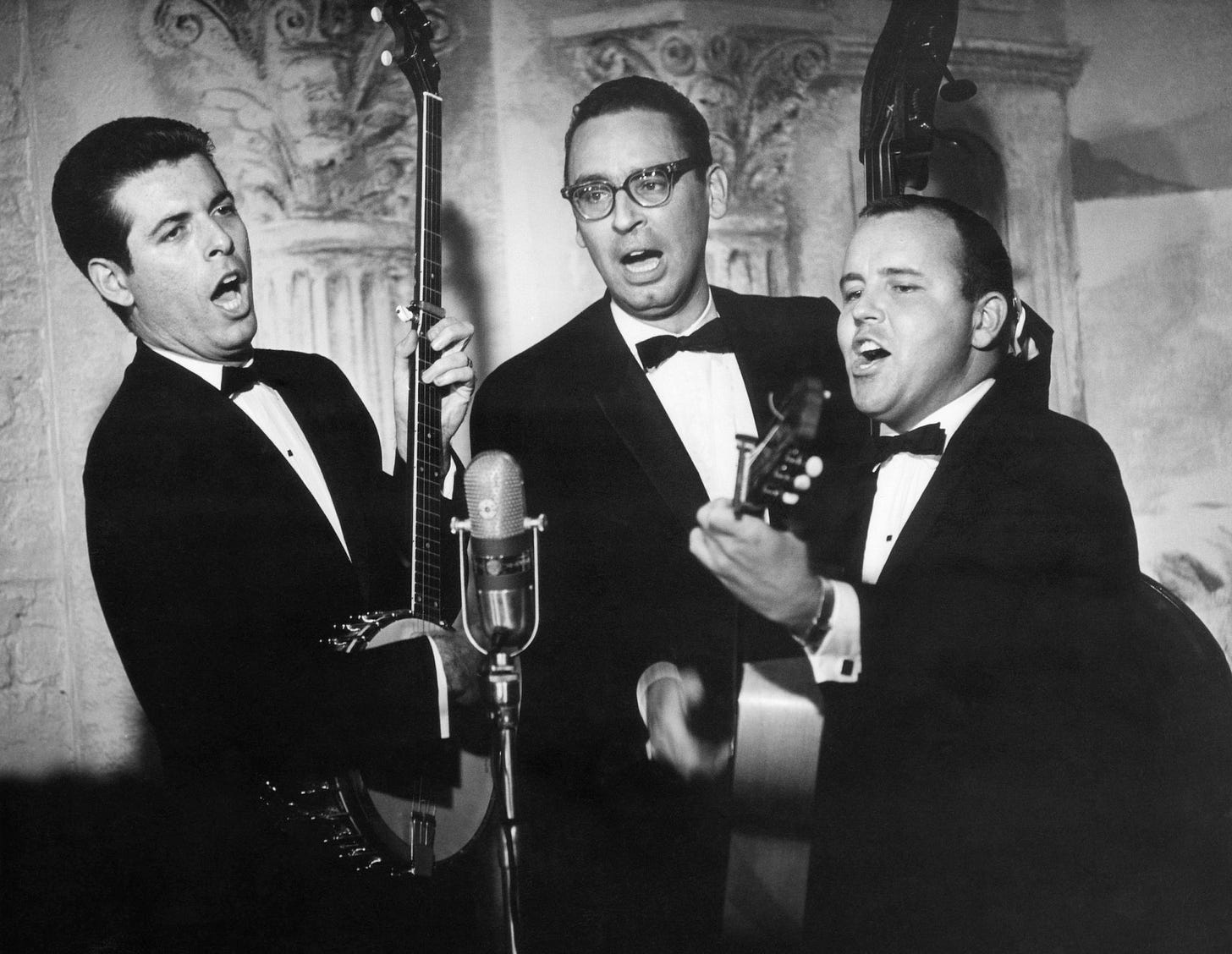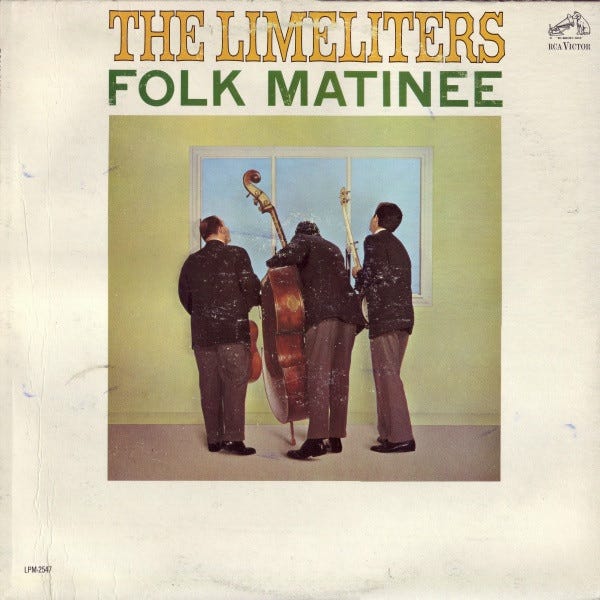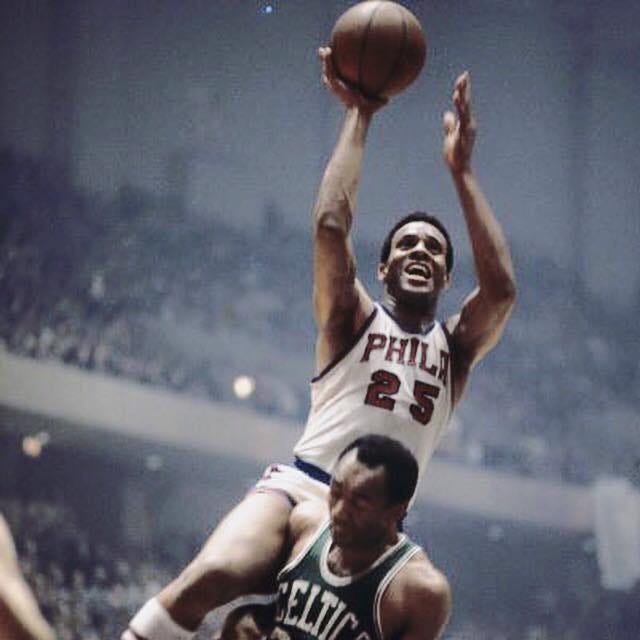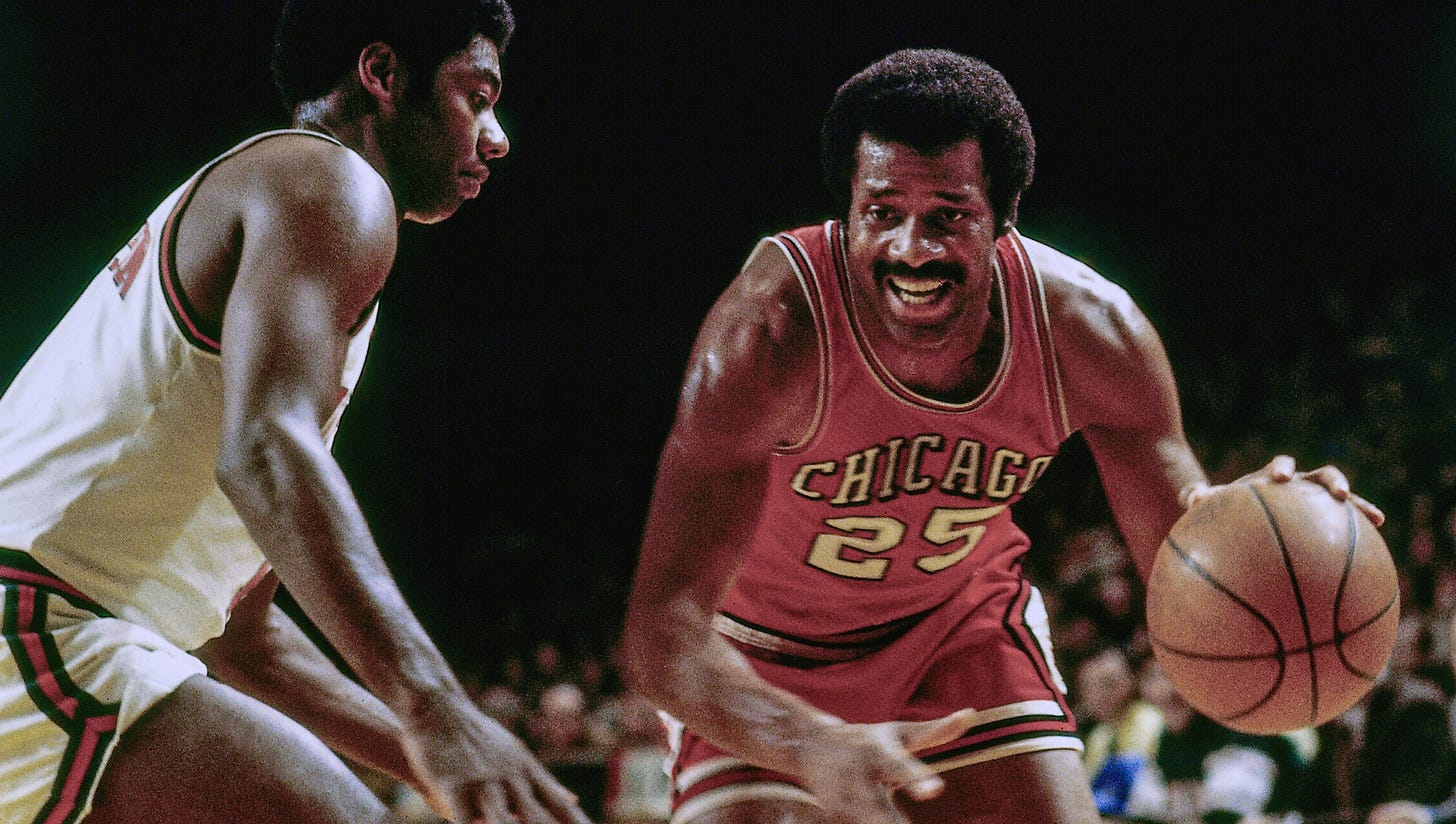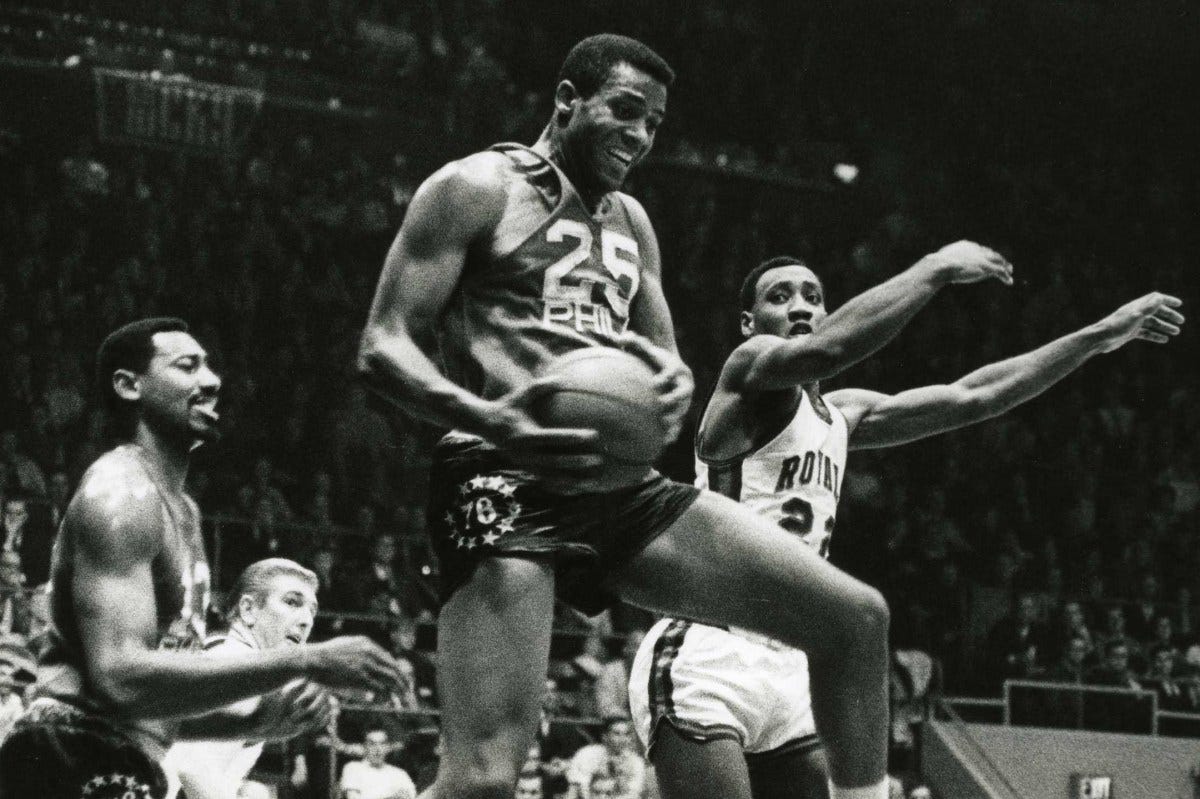Welcome to my weekly newsletter. This week’s issue includes five new Pistons players, a Michael Lewis classic, a deli offering sandwiches Dagwood would enjoy, a folk music trio from the 60s, a star of two NBA teams from Benton Harbor, and a sign in need of proofreading. I hope you like the picks and pics.
We are blessed to have our son Roger and his family visiting us this week. Sommer (4) and Kieran (2) are enjoying their time in Michigan, including swimming, visiting multiple playgrounds, petting farm animals, dining out for breakfast, taking long walks, reading at the library, and visiting many friends.
If you enjoy Fave Five, please share it with your friends who also like books, food, music, sports, or humor. To do so, just click the button below.
Fave Five 93: Greeting the Grandkids
Baseball Book (Moneyball), Dagwood's Deli, Tuneful Trio (The Limeliters), Bradley Brave (Chet Walker), and Uncorrect Usage.
Fave Five Lists: Five New Pistons Players
The Detroit Pistons traded for, signed as free agents, and claimed on waivers five veteran players just before and after the recent draft. Will they help the team make the play-in game next season? It’s not likely, but there is always room for hope.
Malik Beasley - Detroit could have drafted him in 2016 but picked Henry Ellenson instead, and Malik was picked next by Denver.
Tim Hardaway Jr. - a former Michigan star
Tobias Harris - a former Piston
Wendell Moore Jr. - the second “Junior” in the group
Paul Reed - claimed on waivers from Philadelphia because the 76ers acquired Andre Drummond, a former Piston
Book Best Bet
Moneyball: The Art of Winning an Unfair Game by Michael Lewis
As a baseball fan, applied math major, and avid reader, I loved this book. I also enjoyed three other books by the same author: The Big Short, Flash Boys, and The Undoing Project.
From Amazon: Moneyball is a quest for the secret of success in baseball. Following the low-budget Oakland Athletics, their larger-than-life general manger, Billy Beane, and the strange brotherhood of amateur baseball enthusiasts, Michael Lewis has written not only "the single most influential baseball book ever" (Rob Neyer, Slate) but also what "may be the best book ever written on business" (Weekly Standard).
I wrote this book because I fell in love with a story. The story concerned a small group of undervalued professional baseball players and executives, many of whom had been rejected as unfit for the big leagues, who had turned themselves into one of the most successful franchises in Major League Baseball. But the idea for the book came well before I had good reason to write it―before I had a story to fall in love with. It began, really, with an innocent question: how did one of the poorest teams in baseball, the Oakland Athletics, win so many games?
With these words Michael Lewis launches us into the funniest, smartest, and most contrarian book since, well, since Liar's Poker. Moneyball is a quest for something as elusive as the Holy Grail, something that money apparently can't buy: the secret of success in baseball. The logical places to look would be the front offices of major league teams, and the dugouts, perhaps even in the minds of the players themselves. Lewis mines all these possibilities―his intimate and original portraits of big league ballplayers are alone worth the price of admission―but the real jackpot is a cache of numbers―numbers!―collected over the years by a strange brotherhood of amateur baseball enthusiasts: software engineers, statisticians, Wall Street analysts, lawyers and physics professors.
What these geek numbers show―no, prove―is that the traditional yardsticks of success for players and teams are fatally flawed. Even the box score misleads us by ignoring the crucial importance of the humble base-on-balls. This information has been around for years, and nobody inside Major League Baseball paid it any mind. And then came Billy Beane, General Manager of the Oakland Athletics.
Billy paid attention to those numbers ―with the second lowest payroll in baseball at his disposal he had to―and this book records his astonishing experiment in finding and fielding a team that nobody else wanted. Moneyball is a roller coaster ride: before the 2002 season opens, Oakland must relinquish its three most prominent (and expensive) players, is written off by just about everyone, and then comes roaring back to challenge the American League record for consecutive wins.
In a narrative full of fabulous characters and brilliant excursions into the unexpected, Michael Lewis shows us how and why the new baseball knowledge works. He also sets up a sly and hilarious morality tale: Big Money, like Goliath, is always supposed to win... how can we not cheer for David?
One of the best baseball―and management―books out.... Deserves a place in the Baseball Hall of Fame.―Forbes
From Wikipedia: Michael Monroe Lewis (born October 15, 1960) is an American author and financial journalist. He has also been a contributing editor to Vanity Fair since 2009, writing mostly on business, finance, and economics. He is known for his nonfiction work, particularly his coverage of financial crises and behavioral finance.
Lewis was born in New Orleans and attended Princeton University, where he graduated with a degree in art history. After attending the London School of Economics, he began a career on Wall Street during the 1980s as a bond salesman at Salomon Brothers. The experience prompted him to write his first book, Liar's Poker (1989). Fourteen years later, Lewis wrote Moneyball: The Art of Winning an Unfair Game (2003), in which he investigated the success of Billy Beane and the Oakland Athletics. His 2006 book The Blind Side: Evolution of a Game was his first to be adapted into a film, The Blind Side (2009). In 2010, he released The Big Short: Inside the Doomsday Machine. The film adaptation of Moneyball was released in 2011, followed by The Big Short in 2015.
Lewis's books have won two Los Angeles Times Book Prizes and several have reached number one on the New York Times Bestsellers Lists, including his most recent book, Going Infinite (2023).
Restaurant Recommendation
Dagwood's Deli & Catering 33179 Grand River, Farmington, MI 48336
I met a knowledge management colleague, Susan Genden, for lunch here. I considered Dagwood's (Midnight Snack) 2-pound Sandwich: Roast Beef, Ham, Turkey, Colby Cheese, Swiss Cheese, Tomato, Lettuce, and Special Sauce on 4 slices of Marble Bread, reasonably priced at $19.95. But I decided to go with a more moderate choice, and it was very filling.
Alexander's Sub Combo: Hot Turkey, Ham, Salami, Swiss Cheese, Onions, Lettuce, Tomato, Sliced Black Olives, Pepper Rings and Italian Oil on a Grilled Sub Roll
From the restaurant: Welcome to Dagwood's Deli & Catering, Winner of WDIV Best of Detroit 6 Years in a Row! Home of the “Famous” Dagwood Sandwich, we have been offering great food and fast service from our home here in Farmington since 1984!
Marvelous Musicians
I just found out that Alex Hassilev, the last living original member, died on April 21, 2024. Tomorrow would have been his 92nd birthday.
My parents had the Folk Matinee album, which I heard a lot and really liked. It included their version of "Those Were the Days" which predated Mary Hopkin's hit by 6 years. I saw the group perform at The Ark in Ann Arbor with a lineup of Lou Gottlieb, Alex Hassilev, and Rick Dougherty.
From Wikipedia: The Limeliters are an American folk music group, formed in July 1959 by Lou Gottlieb (bass violin/bass), Alex Hassilev (banjo/baritone), and Glenn Yarbrough (guitar/tenor). The group was active from 1959 until 1965, and then after a hiatus of sixteen years, Yarbrough, Hassilev, and Gottlieb reunited and began performing again as The Limeliters in reunion tours. On a regular basis a continuation of The Limeliters group is still active and performing. Gottlieb died in 1996 (aged 72), Yarbrough died in 2016 (aged 86), and Hassilev died in 2024 (aged 91), the last founding member, who had remained active in the group, retired in 2006, leaving the group to carry on without any of the original members.
Gottlieb performed with the Gateway Singers in the mid-1950s but moved to California to complete his PhD in musicology. Later when he was working as an arranger for the Kingston Trio, Gottlieb was in the audience one night when Alex Hassilev and Glenn Yarbrough appeared on stage to sing a duet together at the Cosmo Alley Coffee Shop in Hollywood. Gottlieb originally suggested that the three of them work together to arrange some material for the Kingston Trio, but they discovered their voices blended well and decided to try to get work on the folk circuit. Journalist John Puccio wrote: "They had the uncanny knack of making three voices sound like six...and thanks to their velvet harmonies making a trio sound like a choir."
They went to Aspen, Colorado, to work at a club called "The Limelite", which Yarbrough and Hassilev had purchased after singing there during the previous ski season. After a short period of perfecting their act, they set off for the "hungry i" in San Francisco, which at the time was the California nerve center for the mushrooming contemporary folk movement. The owner had just had a group with three long names strung together and was not about to put "Yarbrough, Hassilev, and Gottlieb" up on the marquee. But the group had not yet decided on a name. They chose "The Limeliters".
Alex Hassilev (July 11, 1932 – April 21, 2024) was an American folk musician who was one of the founding members of the group The Limeliters. He was also an actor with a number of film and television appearances to his credit. As a musician he played the guitar and the banjo. Of Russian heritage, Hassilev was born in France, and educated at the University of Chicago and Harvard. He spoke fluent French, Portuguese, Spanish and Russian and could sing in over a dozen languages.
Glenn Robertson Yarbrough (born January 12, 1930 in Milwaukee, Wisconsin; died August 11, 2016 in Nashville, Tennessee) was an American folk singer and guitarist. He was the lead singer (tenor) with the Limeliters from 1959 to 1963. He also had a prolific solo career, recording on various labels.
Louis Gottlieb (born October 10, 1923 in La Crescenta, California; died July 11, 1996 in Sebastopol, California) credited as Lou Gottlieb, was bassist and comic spokesman for music trio The Limeliters. He held a Ph.D. in musicology and was considered one of the so-called "new comedy" performers, a new generation of unabashed intellectuals that also included Mort Sahl, Nichols and May, and Lenny Bruce. Gottlieb's trademark on stage was a burlesquing of the university pedant, the sort of teacher who knocks himself out over the jokes in Chaucer while his class has nothing on its collective mind earlier than last night's date. "Many of the things I have been enthusiastic about," said Gottlieb, "mean absolutely nothing to most people."
Wabash Cannonball (and other songs)
Gotta Travel On
Lonesome Traveler
Those Were The Days
My Playlist
Sports Star
Chet “The Jet” Walker died last month. I remember watching him on TV as part of the Philadelphia teams that battled the Celtics every year in the playoffs and the Bulls teams that were unable to reach the finals. I always admired his game.
Chet Walker, NBA Champion and Movie Producer, Dies at 84 by Harvey Araton of The New York Times
Walker, who played in seven All-Star games during a 13-year professional career, was a starting forward on the 76ers’ title team, which won 68 regular-season games and broke the Boston Celtics’ championship stranglehold.
On a team often included in discussions of the NBA’s greatest, Walker was the third-leading scorer, averaging 19.3 points per game and 8.1 rebounds, while fitting seamlessly with the future and fellow Hall of Famers Wilt Chamberlain, Hal Greer and Billy Cunningham.
Walker, a 6-foot-7 inch forward, was known for pump-faking defenders into a vulnerable position for his patented jump shots and drives along the base line, where, he calculated, it was difficult to double-team him.
In Chicago, Walker was a focal point of a Bulls unit that featured the forward Bob Love and the guards Norm Van Lier and Jerry Sloan. He began a six-year run with the Bulls by averaging over 20 points his first three seasons. In February 1972, he scored a career-high 56 points against the Cincinnati Royals — a team record that lasted until Michael Jordan scored 57 points in February 1987.
More significant was Walker’s contribution to establishing Chicago as a viable city for professional basketball. “The sport hadn’t made it in Chicago going back decades and they were again looking to move the team,” said Bulls GM Pat Williams. “But when Chet got there, everything changed.”
Within two seasons, the Bulls’ regular-season victory total grew from 33 to 51, and the team, known for its rugged style, roughly tripled its average home attendance. But they typically fell short in the playoffs, most conspicuously failing to close out the Golden State Warriors after taking a 3-2 series lead in the 1975 Western Conference final.
From Wikipedia: Chester "Chet" Walker (born February 22, 1940 in Bethlehem, Mississippi; died June 8, 2024 in Long Beach, California) was an American professional basketball player in the National Basketball Association (NBA). He was a seven-time NBA All-Star. He played 13 seasons in the NBA, seven with the Philadelphia 76ers, and he helped lead the 76ers to an NBA championship in 1967. He played his last six seasons for the Chicago Bulls from 1969 to 1975. He played college basketball for the Bradley Braves, twice earning first-team consensus All-American honors.
Born in Bethlehem, Mississippi, Walker played high school basketball for the Benton Harbor (Michigan) High School boys basketball team. He graduated from Bradley University in 1962 as the school's all-time leading scorer. The Bradley Braves won the National Invitation Tournament championship in 1960. Walker's speed and agility on the court earned him the nickname "Chet the Jet."
Career Highlights
Career Perspective
Picture Pun
Bad usage notice: Plan to use “affecting” and “effecting” correctly.


